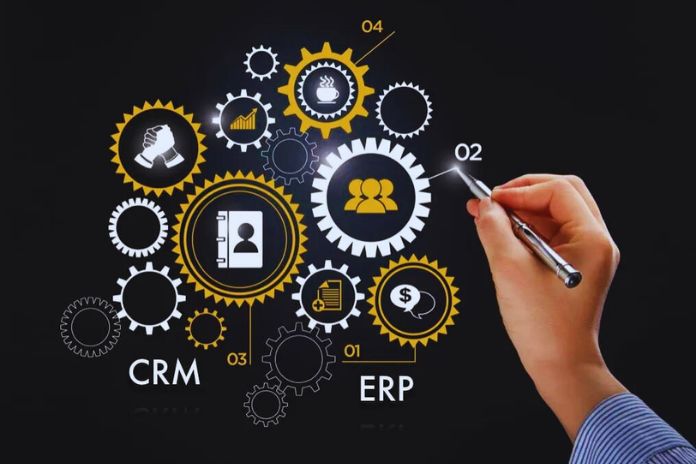CRM and ERP arrangements assist organizations with further developing business processes and diminishing squandering, yet what are the distinctions between these frameworks? What is a CRM stage for, and what is ERP programming for? We should find out together!
What Does CRM Mean?
A CRM arrangement answers the need to oversee client connections better. Before being a business programming, CRM is a plan of action, a system that points both to the smoothness of business processes and fulfilling client assumptions, also where the client is, without a doubt, the focal point of consideration.
What Does ERP Mean?
ERP software, on the other hand, answers the need to make business processes more proficient and successful, an objective that, in straightforward terms, converts into assisting organizations with arranging their assets in an ideal manner: from creation to coordinated operations, from buys to the stockroom.
What Are The Tasks Of CRM?
A CRM solution mainly allows you to:
- catch, make due, and decipher information connecting with your clients (existing and potential);
- follow all connections with your contact information base to fabricate strong, medium, and long-haul relationships;
- improve and increment lead age action;
- oversee promoting, outreach group, and client support exercises in a solitary climate;
- computerize and upgrade showcasing efforts, passing on customized messages with the outcome not just of recording higher reaction and change rates yet in addition of figuring out the genuine requirements of your clients, obtained and potential, at any snapshot of their life cycle;
- situating deals towards strategically pitching or up-selling exercises thanks to the assortment, after some time, of a rising number of snippets of data on the buying system;
- gather grievances from your clients, consequently, allow the movement given explicit measures, and take a look at the satisfaction status;
- Plan exact reports on the consequences of every drive.
What Are The Tasks Of An ERP?
An ERP system allows you to:
- ease up and make the administrative design and cycles more effective;
- accomplish better independent direction and arranging limits thanks to prompt admittance to all data and the capacity to proficiently inquiry and cycle organization information;
- work on a solitary data set regardless of whether your organization is global or has various workplaces;
- work on the productivity of the movement stream by limiting the number of activities essential for each assignment and normalizing their span;
- oversee expenses, amounts, and times for the creation office;
- control bookkeeping;
- decrease costs connected with the obtainment of materials and coordinated operations;
- work on the allotment of HR and assess staff given explicit and quantifiable outcomes.
Do You Need A CRM Or An ERP?
The difference between a CRM solution and an ERP arrangement lies in the way that while the previous creates and puts together client information, the last option facilitates the hierarchical progressions of an organization. As such, while CRM gathers data in the showcasing and deals regions, ERP controls and deals with all creation and monetary capabilities.
Criteria For Choosing The Right System
So, in summary, if you want to unify data about your clients in a solitary device, mechanize promoting, deals, and client care, and break down the consequences of every drive, you need a CRM. Again, assuming you want to make creation more productive, further develop dynamic cycles, or direct the inventory network, then, at that point, you want an ERP.
Is It Appropriate To Integrate The Two Programs?
Indeed. With reconciliation, each part of the business — from interest intending to item configuration, assembling to stockroom obtainment, strategies to bookkeeping — can profit from a solitary perspective on the client, and every one of these areas can influence how the client considers the organization to be an entirety. Besides, coordinating the two frameworks is desirable over ERPs with an interior CRM module, which is, for the most part, not truly adaptable, not intended to tackle the vendors’ concerns, and is generally ineffectively upgraded for versatile use.
Also Read: The CRM Duel: HubSpot CRM Vs. Salesforce

